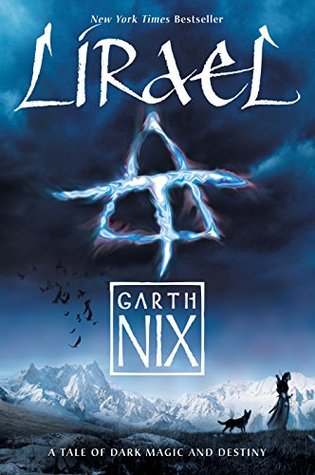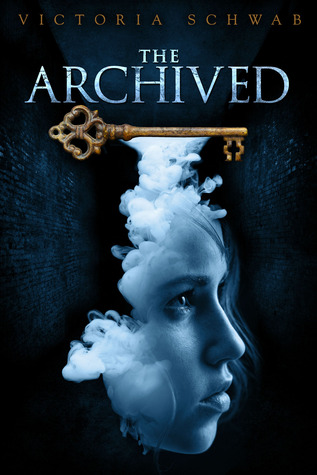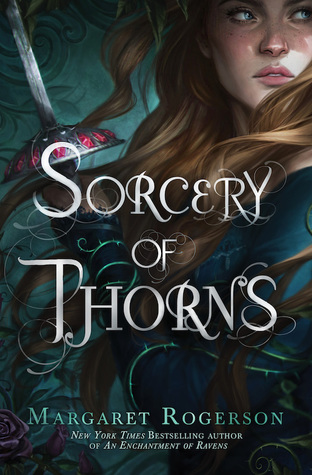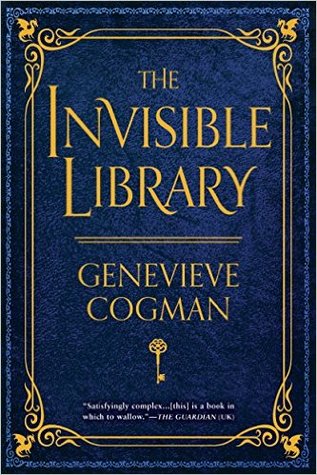Libraries in Literature
Hey you know what are great? LIBRARIES. Books for free? Amazing. Spaces to read? Amazing. Media beyond just books, like DVDs and CDs and magazines? Amazing. LIBRARIES ARE AMAZING. And they have amazing people who work there to spread the love of books, so basically it’s a heaven on earth. I am so sorry for my copious use of the word “amazing”.
AAAAnyway, I’ve recently read a few books which heavily feature libraries in them and that got me thinking! How do libraries in literature compare to modern day/real life libraries? Okay, so we have the obvious point – a lot of what I read is fantasy, so clearly real life libraries don’t deal with anything magical. But what are the ideas behind literary libraries? The functions, the themes, etc. Do they match up with how we think of real life libraries? So I’m just gonna talk about a handful of books (that I happen to love) that feature libraries, and then discuss my thoughts a little bit!
The Books!
The Archived + The Unbound by Victoria Schwab
I’ve talked about these books and the next series (The Invisible Library series) in my post about places in books that I’d like to visit! Which is one of my fav posts so if you haven’t seen it, would recommend LOL.
Anyway, in this duology the library manifests itself in a very unique way – it is a way of archiving the dead and their memories (their entire lives). The goal of it is to preserve the life records of every person, basically. People who work there are NOT supposed to wake the dead, they are supposed to be just records that remain untouched.
The Invisible Library series by Genevieve Cogman
The concept for this whole series is SO COOL. Okay so the Library is this, well, library… haha and it’s this place that’s kind of it’s own pocket dimension. In this universe there are maaaany different worlds that may be versions of our Earth, but might not be. There can be a lot of magic or not, and the time periods can vary. The agents of the library collect books from these different worlds – in particular, books that are unique to those worlds. The Library is essentially working to become a comprehensive collection of knowledge (I feel like it’s almost similar to the Library of Congress?). It’s definitely more of an archive, focused on preserving knowledge.
Sorcery of Thorns by Margaret Rogerson
In Sorcery of Thorns, the main character Elisabeth grows up in one of the Great Libraries. Each Great Library is a magical library – they take care of all sorts of books. The books are alive in a sense, and have a magical danger rating. The particularly dangerous books can lash out and attack you, and must be placed in special cells/rooms. Elisabeth grows up learning how to take care of these books, and sort of becomes a part of the library and the books.
Lirael by Garth Nix
First of all – one of my FAVORITE BOOKS so I highly recommend you read it if you haven’t. Although you should read Sabriel first since Lirael is the second book.
Lirael works in the library of the Clayr (her people) when she is a teenager, until about nineteen years old. There are many levels of the library that go down deep into the glacier (where the Clayr live). Th books are both non-magical and magical. There are many restricted rooms that only higher level workers are allowed to access, and dangerous magical creatures lurk in the depths of the library. Lirael breaks the rules and accesses these restricted places – of course she runs into a powerful evil monster and then has to defeat it.
Discussion
So thinking about these four books/series, two main themes stick out to me: preserving knowledge, and the danger associated with knowledge. This is pretty contrasting to the purpose/ideas of libraries in real life. To me, libraries are based around the sharing of knowledge, and making knowledge accessible.
It makes sense that in literature, or fantasy at least, the theme of knowledge being dangerous would be explored. It’s the perfect setting to make this danger concrete (i.e. monsters or books that attack you). It’s hard to find real world examples of knowledge being dangerous, I think because there are few instances when that is actually true.
The other theme was the one that was really interesting to me – that in literature (fantasy lit) libraries are much more focused on preserving knowledge than sharing knowledge. It seems like an antiquated idea, kind of like keeping knowledge from the masses in case they rise up against you. Maybe this is because many fantasy novels have worlds that are pretty dictated by class? This is often one of the things that the main character struggles with, or has to fight to dismantle.
I think in real life, libraries are these precious places we can go to escape, to learn, and to be happy. Those places seem to be few and far between in fantasy, since most fantasy is pretty dark and high stakes! Or maybe it’s a selection effect based on the types of books I like to read haha.
Also, this is probably very different based on the genre you’re considering! Obviously all my picks are fantasy novels, so the themes here would be pretty different than those in literary fiction, or historical fiction, or some other genre. I would definitely be interested to see how literary fiction depicts libraries! I would guess it would probably align more with how we see libraries in real life.
I’m not sure where I was really going with this I just thought it was an interesting comparison to make! Do you have any thoughts? Or can you recommend me any other great books featuring libraries? I know there are some cool ones in Nevernight and Harry Potter (duh) for fantasy, but I would welcome more recs, in particular some from other genres!














This was such a neat concept! I’ve never really thought about the difference until you mentioned it to me. Other books I can think of include The Library at Mount Char and the library in The Shadow of the Wind! I haven’t read Mount Char though so I can’t comment on what the library there is like. In The Shadow of the Wind the library is called the Cemetery of Forgotten Books and it’s where they keep old, forgotten titles lovingly preserved by a select few initiates. According to tradition, everyone initiated to this secret place is allowed to take one book from it and must protect it for life.
The Forgetting features a neat library aspect. Everyone in the city of Cannon loses their memory every 12 years so they record all their memories each day and archive it in a massive library.
I haven’t heard of some of these books, but now I want to read them! I agree though that in real life, knowledge isn’t usually dangerous in itself. What’s dangerous is what people decide to do with that knowledge (like how sci-fi explores “but should we make the thing??” question . . . like Stark and Banner’s argument in Age of Ultron). But I have met too many people who blame knowledge as the culprit and who then decide that learning certain things, etc. is wrong. Which is kind of sad.